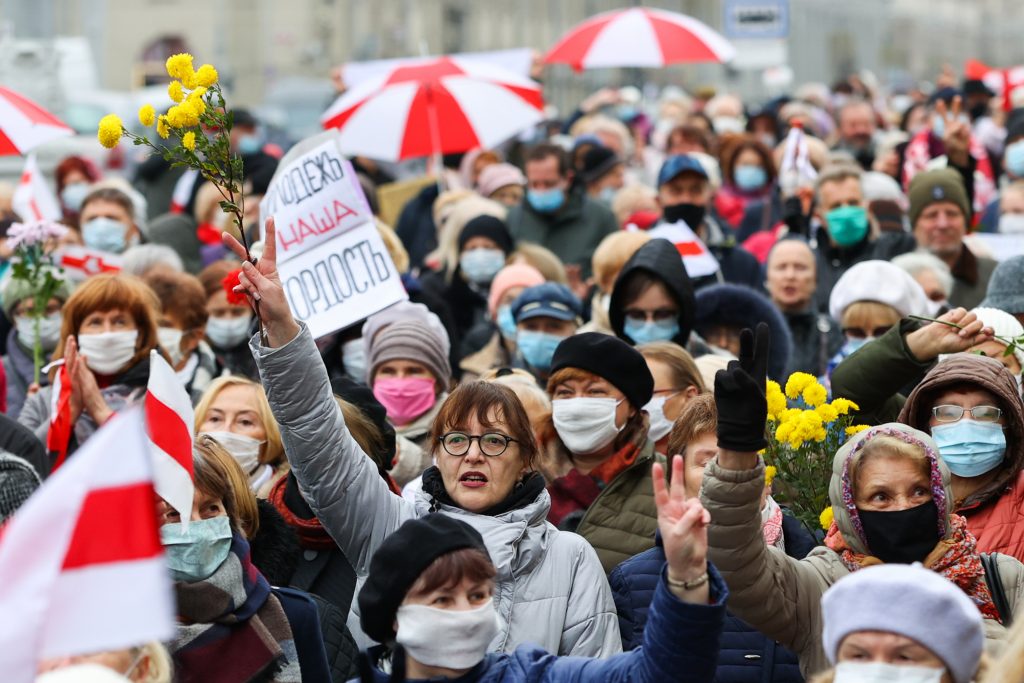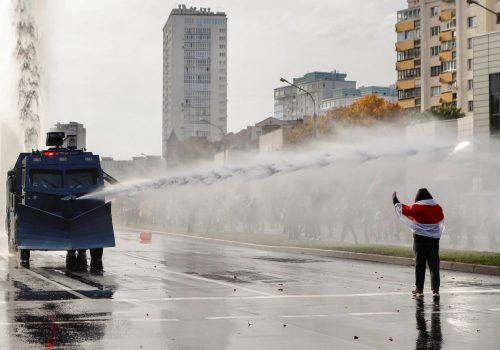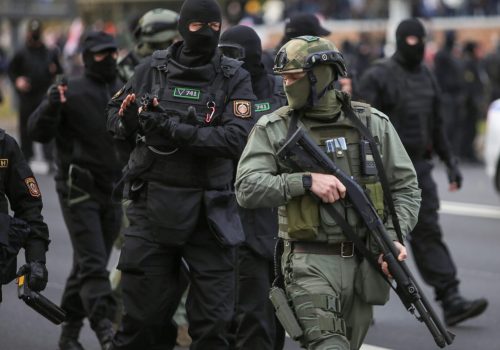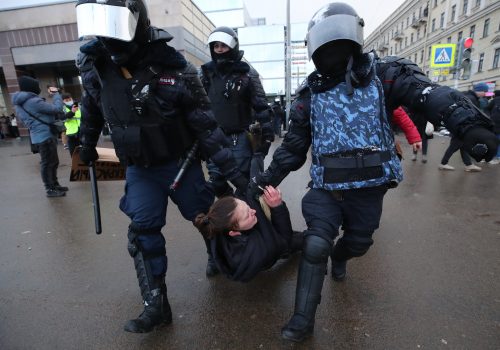Earlier this month, the Eurasia Center hosted a discussion about the rapid growth of civil society in Belarus in 2020. During the conversation, it became clear that our audience wanted more information about Belarusian civil society organizations and independent think tanks.
Let’s face it: in a country without a free media, it’s hard to stay abreast of the latest developments. Our community also wanted to know how solidarity groups in Belarus receive financial support and to better understand the best places to receive independent commentary and more detailed information about the situation on the ground in Belarus.
In response, we’ve asked our Belarus experts for help. Based on their recommendations, we have compiled introductory lists of Belarusian civil society groups and think tanks.
Since August 2020, Belarusians have raised more than EUR 10 million to support civil society organizations and solidarity funds. Unfortunately, many organizations have expressed concerns that they have hit a wall in their domestic fundraising efforts and are now scraping together resources to do what they can to support protesters who have continued to turn out throughout the winter months.
We offer this list of solidarity funds in order to help our community learn more about the extraordinary civil society work underway:
Belarusian Culture Solidarity Foundation (BCSF): A collective of 1,500 artists and musicians who document violent abuses by the Lukashenka regime and support artists pressured by the regime.
Belarusian Medical Solidarity Foundation (BMSF): Aims to protect the rights of medical workers who have been fired from their jobs for participating in protests.
Belarus Solidarity Foundation (BYSOL): This foundation has distributed more than EUR 2 million to public servants and law enforcement agency employees who quit their jobs in protest over violence against protesters.
Belarusian Sports Solidarity Foundation: Supports athletes who have been detained or persecuted for supporting peaceful demonstrations against the Lukashenka regime.
Probono: Connects legal, psychological, and medical resources with those who need them.
Protect Belarus: Provides financial assistance to law enforcement officers who lost their jobs for standing up to the Lukashenka regime.
Solidarity Association of Belarusian Law Enforcement Personnel (BYPOL): Investigative group of former law enforcement officers who quit in response to the violent crackdown against pro-democracy protesters.
Below is a list of independent think tanks covering Belarus. This is not as comprehensive as the list covering NGOs, but these organizations stood out in our research:
BEROC Economic Research Center: Closely monitors the effects of COVID-19 on the Belarusian economy and society.
Belarusian Institute for Public Administration Reform and Transformation: Located at the School of Young Managers in Public Administration (BIPART/SYMPA) and has a number of experts working with the public to improve public services in Belarus.
Belarusian Institute for Strategic Studies: Home to the “Be Critical” initiative to promote critical thinking among young people.
Belarus National Security Blog: Seeks to provide objective analysis of national security in Belarus.
Centre for European Transformation: Their “Revolution Barometer” series on YouTube analyzes the latest developments in the Belarusian struggle for self-determination.
Center for New Ideas: Dedicated to creating new policies for Belarus to overcome the challenges facing the country in the 21st century.
Center for Social and Economic Research Belarus: Features a series of videos with other European reformers on the challenges of economic reform in Belarus.
Eurasian States in Transition Research Center: Significant case study research on government responses to the global pandemic.
IPM Research Center: Opened in 1999, IPM produces economic and social research focused on Belarus.
Of course, the views expressed by the think tanks listed above do not necessarily reflect the views of the Atlantic Council or the Eurasia Center, but their research caught our attention.
Andrew D’Anieri is a program assistant at the Atlantic Council’s Eurasia Center.
Further reading
The views expressed in UkraineAlert are solely those of the authors and do not necessarily reflect the views of the Atlantic Council, its staff, or its supporters.

The Eurasia Center’s mission is to enhance transatlantic cooperation in promoting stability, democratic values and prosperity in Eurasia, from Eastern Europe and Turkey in the West to the Caucasus, Russia and Central Asia in the East.
Follow us on social media
and support our work
Image: Belarus has been rocked by more than six months of pro-democracy protests since a deeply flawed presidential election in August 2020. (Stringer/TASS via REUTERS)




